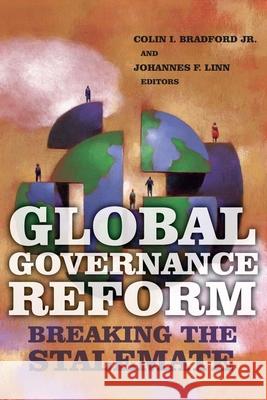Global Governance Reform: Breaking the Stalemate » książka
Global Governance Reform: Breaking the Stalemate
ISBN-13: 9780815713630 / Angielski / Miękka / 2007 / 160 str.
The current international system of institutions and governance groups is proving inadequate to meet many of today's most important challenges, such as terrorism, poverty, nuclear proliferation, financial integration, and climate change. The International Monetary Fund, World Bank, and UN were founded after World War II, and their structures of voting power and representation have become obsolete, no longer reflecting today's balance of economic and political power. This insightful book examines how to make such institutions more responsive and effective. Institutional reform is critically needed but currently in stalemate. A new push is needed from powerful nations acting together through a reformed and enlarged G-8 that includes emerging economies, such as China and India. Global challenges demand integrated approaches, with greater coordination among international institutions. Global Governance Reform argues that without reconstituting the Group of 8 summit into a larger, more representative group of leaders, with a new mandate to provide strategic guidance to the system of international institutions, the world will fall further behind in addressing global challenges. The path to global reform is defined by the need to act in coordinated ways on summit and institutional reform, and this book lights the way.











